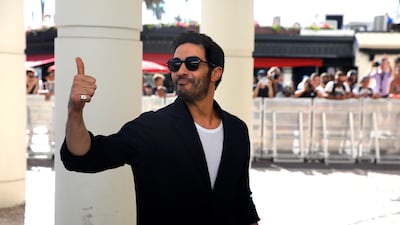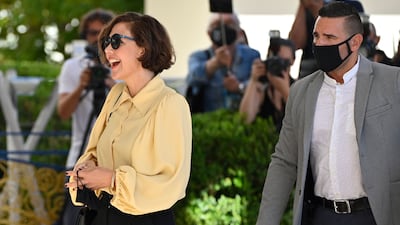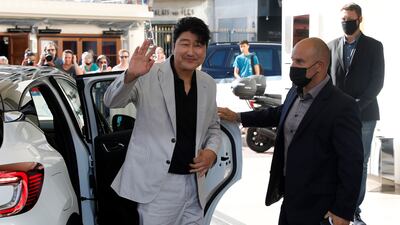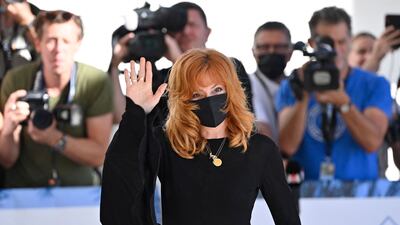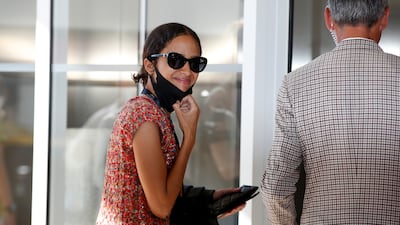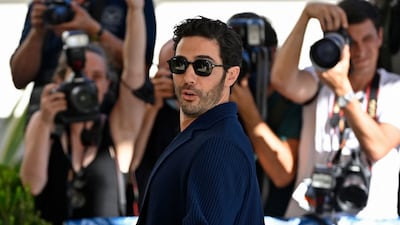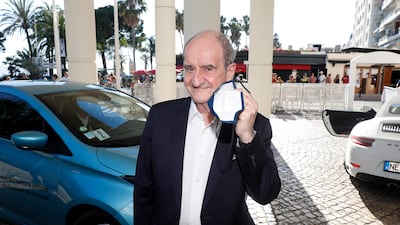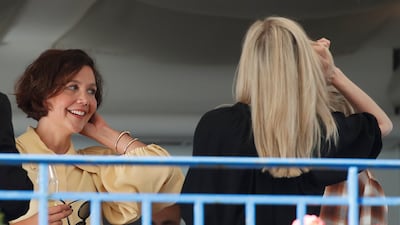This year's Cannes Film Festival, which begins on Tuesday, presents a new frontier for cinema's most prestigious celebration.
After last year’s event was reluctantly cancelled due to Covid-19, organisers are gambling on the 2021 iteration sidestepping the global health crisis. Compared to 2019, when festival-goers’ biggest worry was whether they were going to get in to see Quentin Tarantino’s hot ticket Once Upon a Time ... in Hollywood, this year feels very different.
The festival has introduced an advanced booking system for screenings, meaning there's no more browsing the catalogue spontaneously, picking a film and just rocking up at the last minute. Now you need to get up at 7am two days before, when tickets go online, if you want to get a seat.
Entry to screening rooms is timed to avoid crowds forming long lines outside. Those who arrive late risk losing their seat or – worse still – risk being locked out of the computer system if they fail to turn up.
The festival is also going big on testing for Covid-19, especially with the Delta variant still rampant in some countries.
If you’ve been double-vaccinated and have arrived from a country in the European Union, then you’re in the clear, in theory. You’ll be allowed to enter the Palais des Festivals, where certain screening rooms, the press conference auditorium and other administrative offices are located.
However, if you live outside the EU – even if you’re fully vaccinated – you have to submit to testing every 48 hours in a marquee-like centre just yards away from the Palais.
Offering a similar set-up to the one road-tested at the recent Monaco Grand Prix, it’s a remarkably slick operation. After booking your test online, you arrive at the appointed time, administer the saliva test yourself and then wait for six hours before receiving your results.
Only with a negative test can you be admitted into the hallowed Palais, where mask-wearing is mandatory. Some hotels on the Croisette promenade are also requiring negative PCR tests before they let you hang out at their premises.
In other ways, things are the same as they ever were. The usual throng of bystanders gather with their stepladders outside the Grand Theatre Lumiere, in anticipation of seeing stars walk the red carpet for the festival's opening film, Annette.
A musical with songs written by Sparks, and featuring Marion Cotillard and Adam Driver, it’s the first film from France’s Leos Carax since his 2012 film Holy Motors.

At least the festival’s rather strange rule of no selfies on the red carpet now has some validity, keeping the crowds moving in an orderly (and socially distanced) fashion.
What remains to be seen is how security will cope over the weekend when the big stars roll into town, including Sean Penn, with his new directorial effort Flag Day, and Matt Damon, with his thriller Stillwater. Will the crowds be able to control themselves? Or will there be surges and screaming like the good old days?
With the festival shifting from its usual May berth to July – the height of tourist season – it feels like a one-off summer spectacular, a welcome curiosity after a year starved of in-person film festivals.
With bus-loads of auteurs due in town – from Todd Haynes (The Velvet Underground) to Paul Verhoeven (Benedetta) – you can’t help but feel Cannes is back in glorious Technicolor. Vive le cinema, as the French would say.
Cannes Film Festival runs until Saturday, July 17
